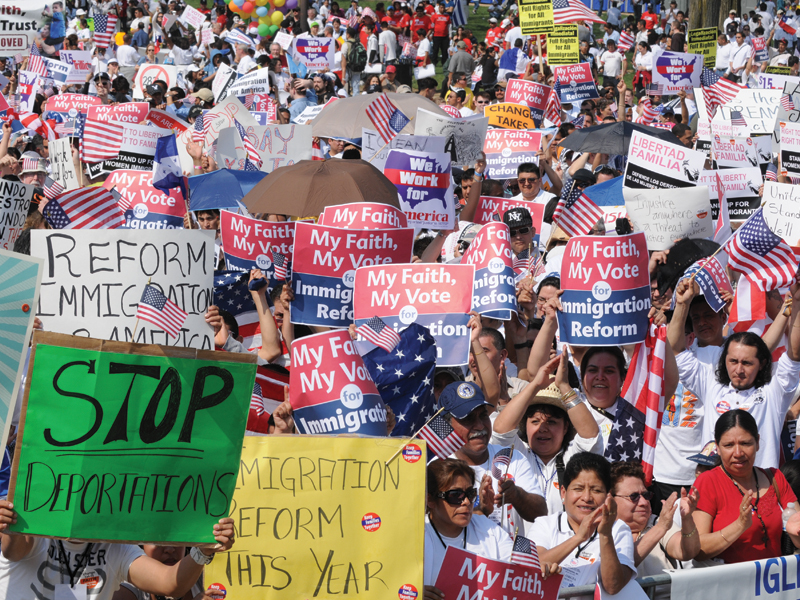
The political debate on immigration reform in the United States has been a lingering issue for decades. Overwhelming bipartisan legislation to reform the nation’s flawed immigration policy was passed in the Senate last June, and it is time for the House of Representatives to compromise with the Senate and White House to come up with a responsible, comprehensive plan that will decrease our nation’s deficit by $1 trillion in the next two decades.
Passing such a reform is not only a humanitarian act that brings justice to millions of families loyally contributing to the nation’s well-being, it is also a form of economic stimulus, according to the Immigration Policy Institute. A study by Rob Paral and associates found that after three million undocumented workers were granted amnesty by the Immigration Reform and Control Act (IRCA) of 1986, “between 1990 and 2006, the educational attainment of IRCA immigrants increased substantially, their poverty rates fell dramatically, and their homeownership rates improved tremendously.” These immigrants saw an increase in real wages and the vast majority did not depend on government aid. These findings contradicted the fear that granting amnesty to undocumented workers would increase the nation’s unemployment and poverty rates.
The founding director of the North American Integration and Development Center at the University of California, Los Angeles, Raul Hinojosa-Ojeda, approximates that if the United States were to grant amnesty to the estimated 11 million undocumented workers living here today, the additional wages earned by undocumented workers “(would) translate into an increase in net personal income of $30 to $36 billion, which would generate $4.5 to $5.4 billion in additional net tax revenue.” The additional income acquired by these workers and their increasing consumption levels would be able to support 750,000 to 900,000 new jobs. He also estimates that in California alone, the wages of unauthorized workers would rise by $26.9 billion and would produce an additional $5.3 billion in tax revenue, creating 633,000 new jobs.
There is a monetary and human cost to doing nothing. By ignoring this issue, the United States loses out on additional jobs and revenue that could be reinvested back into the labor force. Workers that come to America in search of a higher quality of living for their families are not job-takers, they’re job-makers. The United States is losing jobs, revenue, and opportunities for American-born citizens to find work by stalling immigration reform. This is supported by Hinojosa-Ojeda’s research that removing the insecurity of legal status would “encourage (undocumented workers) to invest more in their own education, open bank accounts, buy homes, and start businesses.”
Undocumented workers have unfairly lost out on $2.2 billion in wages each year because of their legal status. Manuel Pastor and his colleagues at the Center for the Study of Immigration Integration at the University of Southern California found that if “unauthorized Latino workers were granted legal status … the federal government would gain $1.4 billion in paid income taxes each year.”
However, none of these benefits can be reaped until Congress compromises on an immigration bill that provides, at least, legal status to undocumented workers. Until then, the United States will continue to lose out on opportunities for economic and job growth.








